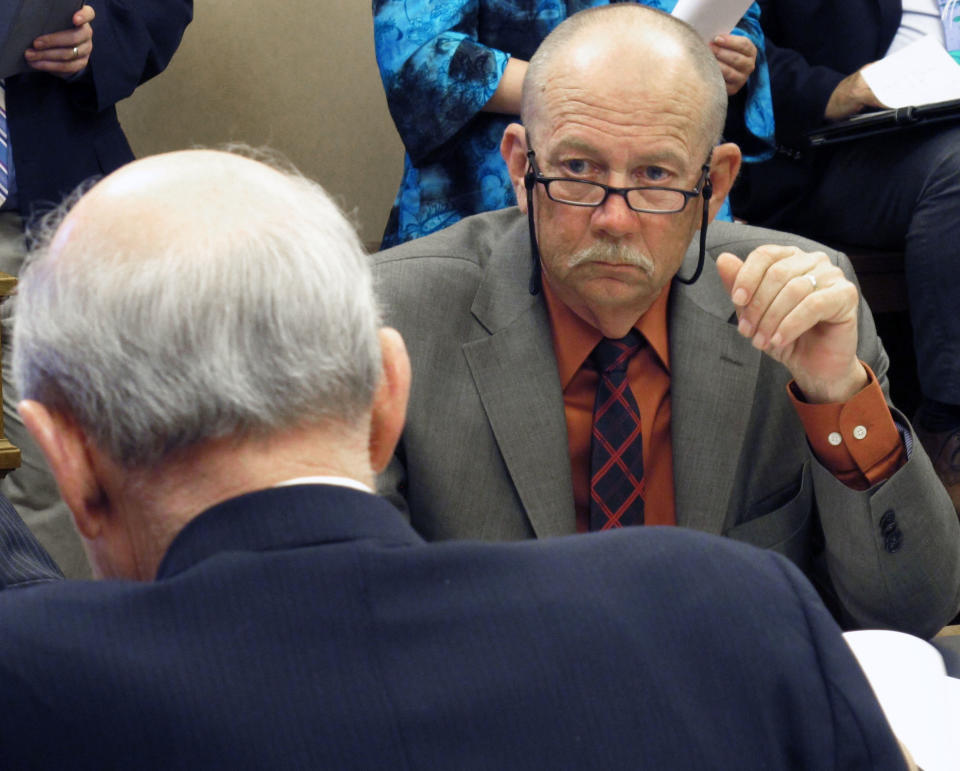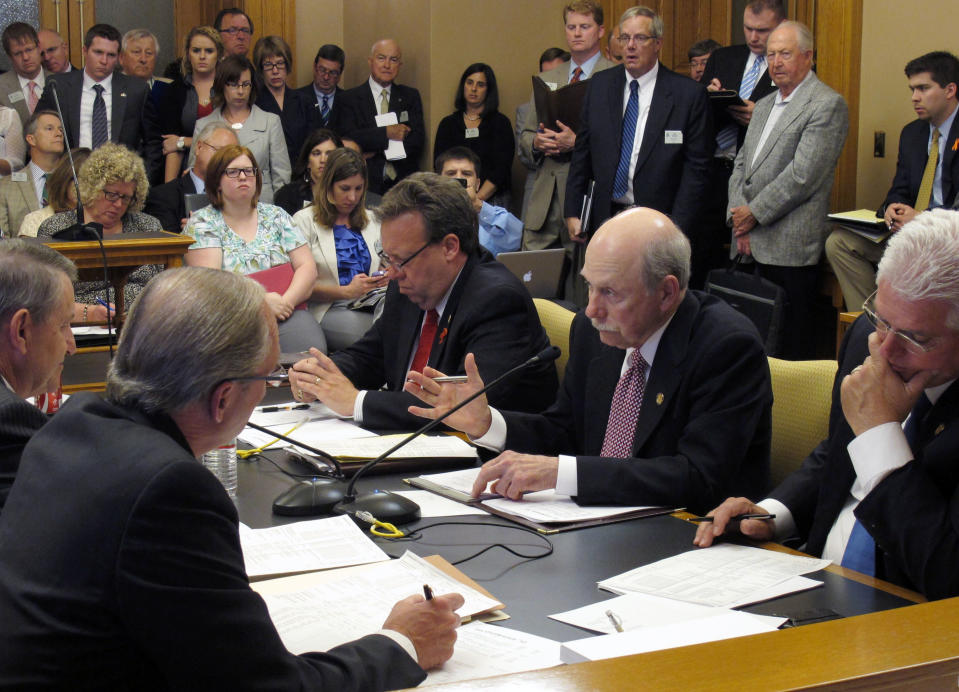Kan. tax cut plan starting to emerge from talks
TOPEKA, Kan. (AP) — A compromise plan for cutting income and sales taxes in Kansas began to emerge Wednesday from bargaining between the state House and Senate, leaving negotiators optimistic that they'll quickly wrap up work but attracting criticism from dozens of former Republican lawmakers.
Republican Gov. Sam Brownback and the GOP-controlled Legislature are pushing tax-cut plans that they argue would stimulate economic growth. The governor wants to drop the state's top individual income tax rates and exempt 191,000 partnerships, sole proprietorships and other businesses from income taxes.
But more than 40 former Republican legislators criticized the push, arguing during a news conference Wednesday that lawmakers are likely to shift the tax burden from the wealthy to the poor and leave public schools without adequate funds.
The plan emerging from legislative negotiations appeared likely to embrace both of Brownback's ideas, and lawmakers seemed ready to add a proposal to cut the state's sales tax to 5.7 percent from its current 6.3 percent in July 2013.
The three senators and three House members drafting the compromise also moved toward giving cities and counties additional state dollars to keep local property taxes in check, a key goal of Democrats.
The negotiators reviewed proposals for more than an hour Wednesday and scheduled another session for Thursday. The lead negotiator in the Senate, Les Donovan, a Wichita Republican, said both chambers could vote on a compromise sometime next week, ahead of the session's 90th day.
Lead House negotiator Richard Carlson, a St. Marys Republican, added: "I think we made substantial progress."
A key issue is how a tax plan affects the state budget. Brownback's plan would have reduced state revenues by about $90 million during the fiscal year beginning July 1, balancing his tax cuts with measures to eliminate deductions and credits without a sales tax reduction.
But both chambers approved much larger cuts, and their plans would create major budget issues in the future.
The group of ex-GOP legislators objecting to the direction of the tax debate calls itself Traditional Republicans for Common Sense. Members include former U.S. Sen. Sheila Frahm, who served both as lieutenant governor and the state Senate's majority leader; former Lt. Gov. Gary Sherrer; former Senate President Dick Bond; and former House Speakers Jim Braden and Robert H. Miller.
Former state Rep. Rochelle Chronister, of Neodesha, also a former state GOP chairwoman, said the ex-lawmakers worry tax cuts mean "a looming crisis for our children's education." Democrats have expressed similar concerns.
"This is truly a moral crisis for our state," Chronister said during the Statehouse news conference. "Asking the poorest to pay more and the richest to pay less is unfair."
Brownback's tax plan drew criticism because it eliminated an individual income tax credit for poor workers, and households with adjusted gross incomes of $25,000 or less would have been the only group to see an income tax increase. The group's collective burden would have jumped by more than 5,200 percent because it now receives more from tax breaks than it owes.
Donovan said criticism of legislators' work is unwarranted because of modifications they're making in moving toward compromise and because they intend to avoid budget problems.
The negotiators are leaning toward keeping the full credit for poor workers but giving them a choice of taking it or getting a rebate for the sales taxes they pay on groceries. Currently, taxpayers can get both.
The negotiators also are moving toward phasing in the income tax exemption for businesses over six years, starting for 2013. And they discussed setting the state's top individual income tax rate at 4.9 percent, down from 6.45 percent, as Brownback proposed.


